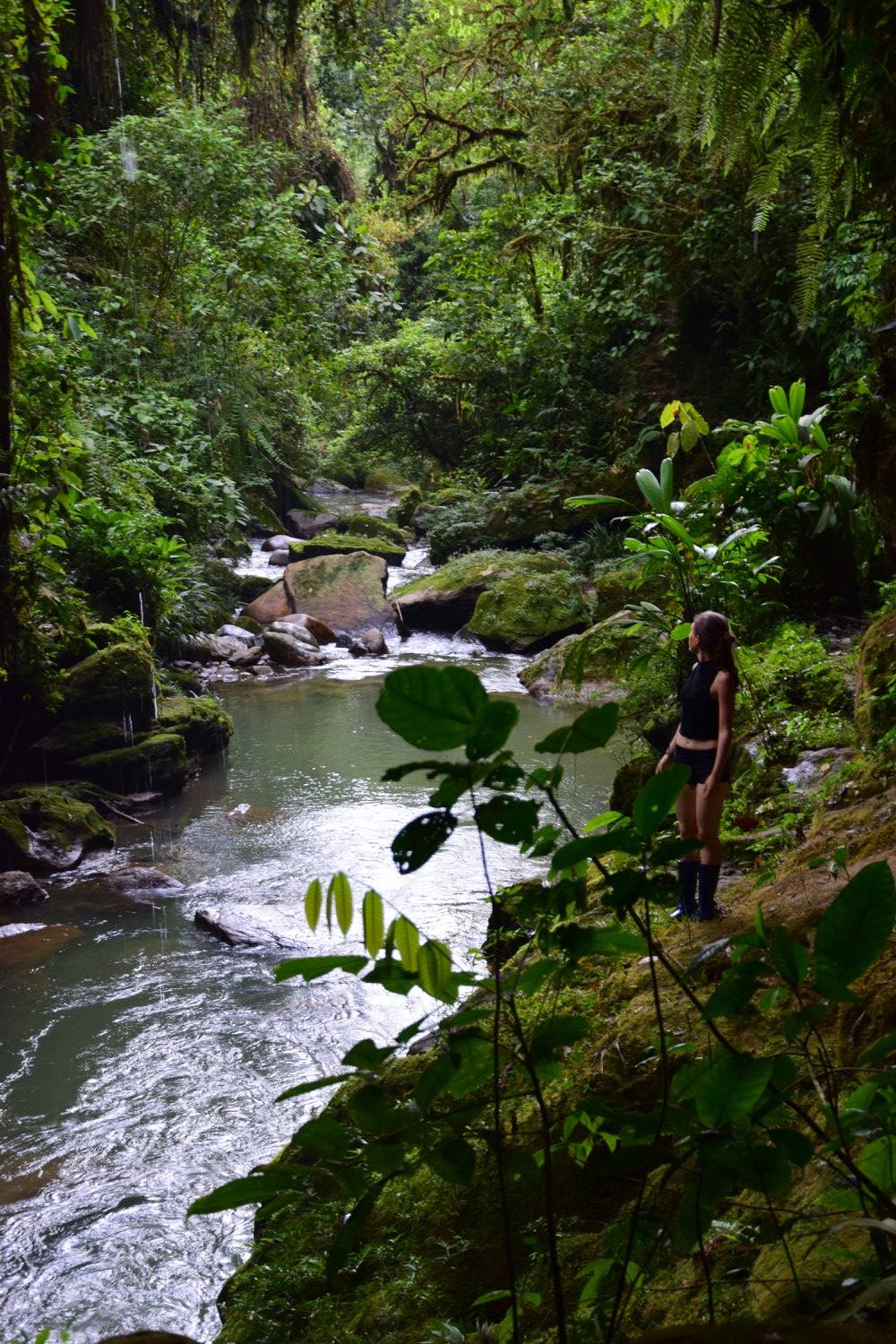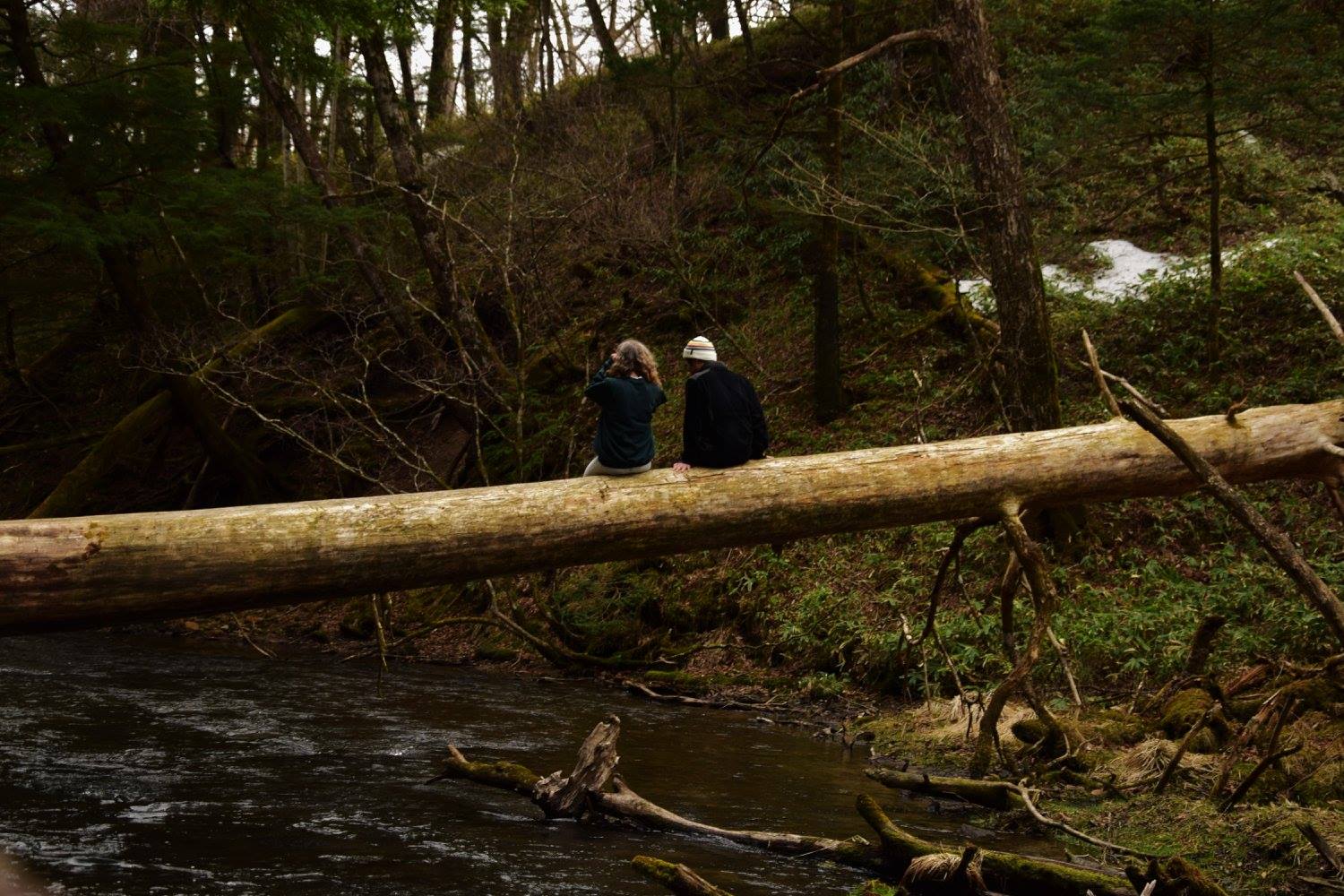Slow travel is a new term that stands for sustainable and conscious travelling. Nowadays, it's becoming increasingly popular, and not without a reason. But what is slow travelling? What can you do to travel slow?
Slow travelling originates from the "Slow movement", a movement in which the idea is to slow down one's life pace. Carl Honoré, a Canadian journalist, wrote the book "In Praise of Slow" about the slow movement. He describes it as
"[It is] a cultural revolution against the notion that faster is always better. The Slow philosophy is not about doing everything at a snail's pace. It's about seeking to do everything at the right speed. Savoring the hours and minutes rather than just counting them. Doing everything as well as possible, instead of as fast as possible. It’s about quality over quantity in everything from work to food to parenting"

The movement can be applied to all aspects of life. Famous examples are the Slow Food and Slow Fashion movement, but there are many more (check out this wikipedia page for example: https://en.wikipedia.org/wiki/Slow_movement_(culture)). Slow travel is one of these sub-movements. A quote that came up in my mind relating to this way of travelling is the famous quote "It's not about the destination, it's about the journey". Since travelling around the world is so easy nowadays, I believe that most people focus on the destination and all the places they want to see. I have to admit, I sometimes feel the same way, but from experience I know that staying in one place for a long time suits me much more.
So what is slow travel? It's about losing the idea of having to see everything there is to see, it's about accepting that you don't have to see all the highlights, it's about enjoying the place you're visiting, or travelling through, it's about slowing down, enjoying the moment and leaving some room for improvisation. Before and during slow travel, you make conscious choices, in which you think about how you can relax during your trip and how you can connect with and truely experience the country and society you're visiting. By doing this you can give back to the communities you visit, engage with new people and even lower your carbon footprint.
When I went to Japan for 2,5 months, I knew I had a lot of time to see many things. However, after a couple of days I realised I was tired of visiting all those places on my list and travelling to a new places every 1-2 days. I was staying in a nice, cosy hostel and rather enjoyed talking to the staff and eating and cooking Japanese food. Eventually I ended up staying there for quite some time, before I left for my next destination. During my whole trip in Japan, so in 2.5 months, I had only visited Tokyo, Osaka, Kyoto and Hiroshima. There were so many sights I hadn't seen, but I couldn't be bothered. During this time I made great friends (whom I still am in contact with after 7 years), got to know local culture, spent time with many Japanese people and enjoyed the beautiful landscape. I still feel so happy when I think back to this time, and I never think about the places I haven't seen.
Does this sound like something you want to experience? Then let('s) go! Let's leave our busy lifes behind and enjoy something new. There are many ways to travel slow, and of course it can still be combined with going sightseeing and planning your trip. Just take the time to enjoy planning, and maybe not plan everything. Here are some tips to prepare you're slow travels:
- Find a place you really want to experience, see, feel.
- Take time. Don't rush through a country or continent. You don't have to see everything. Maybe just choose a certain region to visit.
- Don't just look at a guidebook. Of course, they will show you the most famous places, but this doesn't mean they are the most beautiful ones. This usually means they are the most crowded ones. Asking locals or simply heading out by yourself might present you with even greater experiences.
- Search for a way to travel, in which you will see and experience most of the culture. This is generally a SLOW way of travelling. Airplanes bring you to your destination, but you will not really 'experience' the journey. So good alternatives are by train, hitchhiking, bus, or even cycling or walking. Make the journey fun, and really part of your trip. As a side-effect this is also helping your carbon footprint.
- Do things that truely make you happy, and not just things that are on an internet list. So if you don't like cities, don't go to cities. If you like nature, spend some time in a national park. If you love food, take a cooking course, find some special restaurants in the region, or eat at local markets.
- (Partly) forget about the usual sights and standard hotels and go off the beaten track. Find special accommodation on AirBnB, try house-sitting, look for local (but nice) hostels, visit the local market, ask a local (also possible on the couchsurfing website) what they think are underrated places in their country/region, etc. Not only will this make your experience more unique, it will also support the local industry, rather than the big businesses at the hotspots.
- Take part in local traditions and the local way of living.
- Don't make a plan! Leave your place and start walking around. Take a bus and get off wherever you feel like getting off, accept the uncertainty of not always knowing what will happen today.

By doing all, or some of these things, you can truely experience slow travelling, and hopefully relax more while really experiencing the local culture. There are also other advantages to slow travelling, I'll mention a couple of these:
- It is often cheaper. Staying in one place for a while saves money on travelling and you can find cheap but delicious places to eat. Also, visiting sights other than the touristy ones, will also really reduce your spendings. Furthermore, if you don't make a strict travel plan, you can work around expensive tickets by travelling on the days the prices are lowest.
- It is often more sustainable. Travelling different and less can really reduce your footprint on this world.
- You'll come back more relaxed. Because you plan less, and look at the time less, you can just do whatever you feel like, whenever you feel like it. No rush!
- You'll have a more unique experience. Depending on whether you care about this or not, it can be an advantage of slow travelling. You can experience the local aspects of life, instead of just the tourist hotspots.











When you find it difficult to sanderP contributed on 23-04-2019 16:25
When you find it difficult to slow down, a language course including homestay with a local family might help break the ice. They usually know how to get off the beaten trail and with some basic language skills a tourist-free place is less scary.
Such a good suggestion Sander hannahlow contributed on 23-04-2019 16:24
Such a good suggestion Sander!! Thanks! :D
Add new contribution